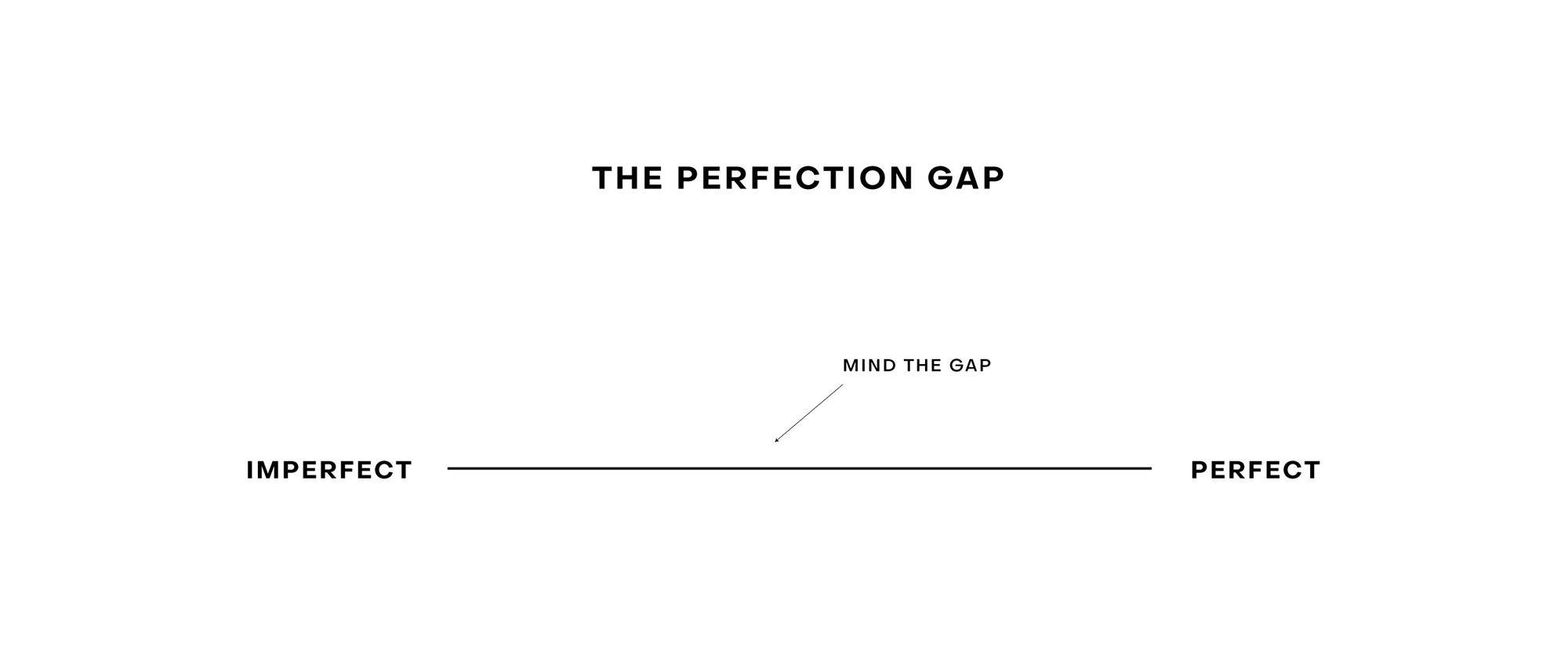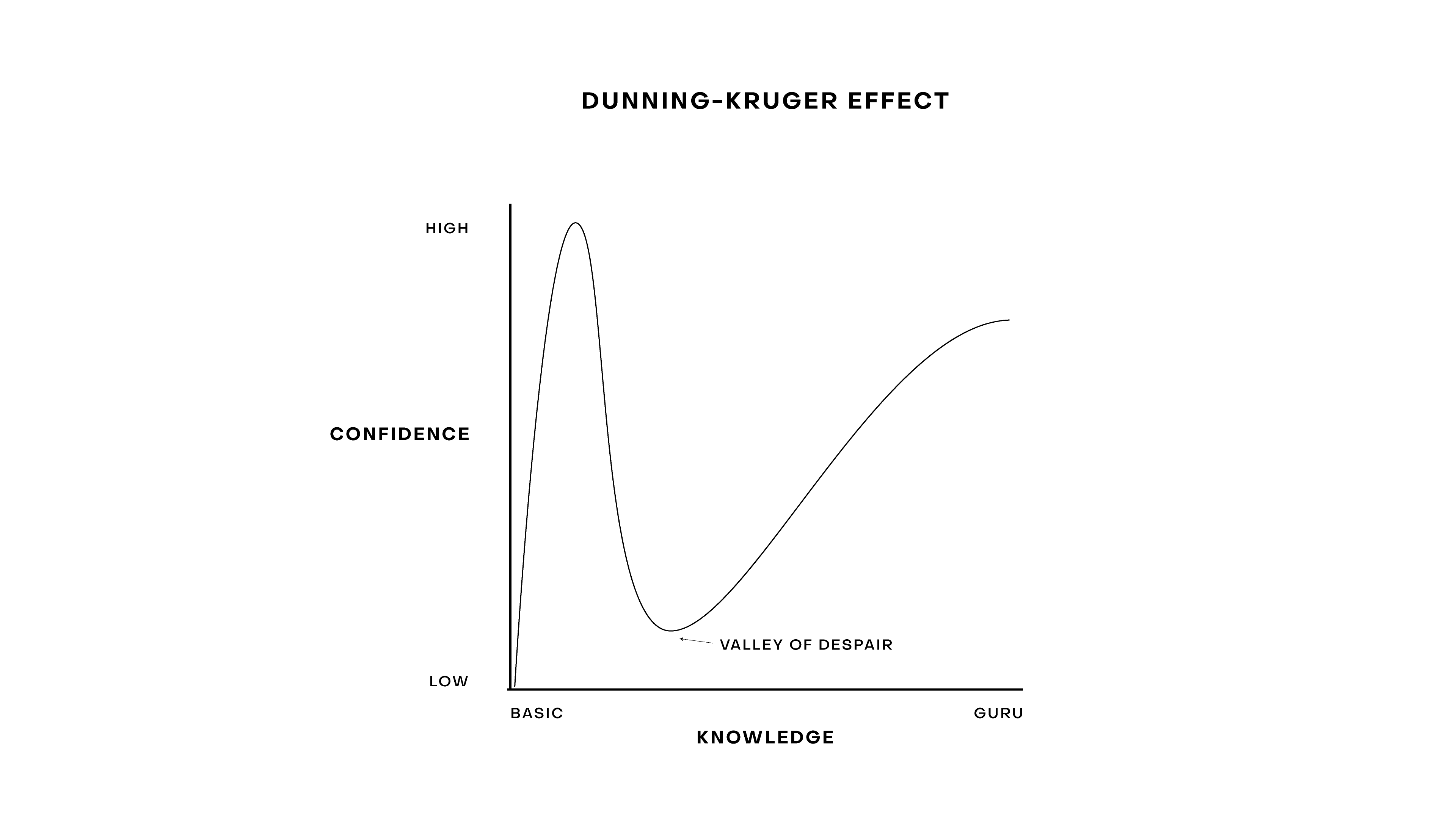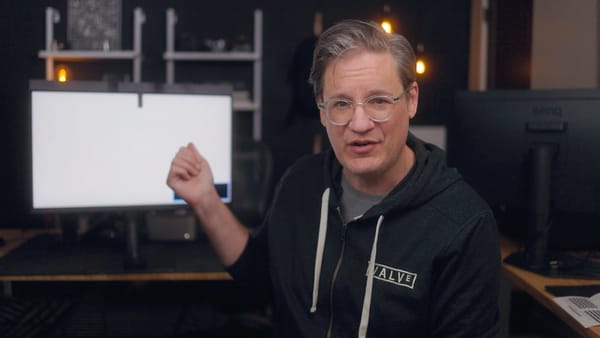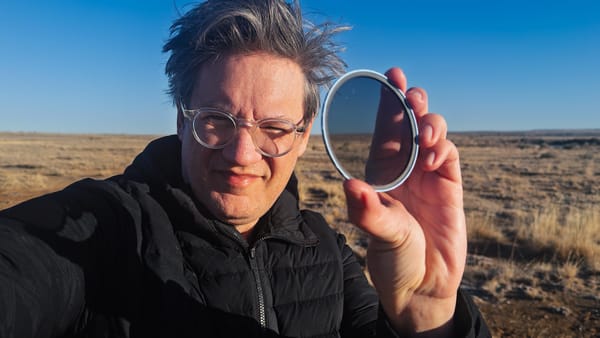Four reasons creatives feel miserable

Whether you're a writer, photographer, musician, artist, or any type of creative, I bet you've experienced fear, doubt, or burnout. All three, perhaps. I'm not referring to moodiness here. Rather, a dark feeling that lingers in the back of your mind, telling you your work is shit, you're a fraud, and you shouldn't continue.
If you’ve never experienced these emotions, I’m happy for you! But for the rest of us, I want to share four things that have always done a really good job of breaking my confidence, putting me in a dark place emotionally, and making me feel miserable.
Perfection Gap
Many songwriters describe having songs come to them in their sleep, and how they’ve learned to keep with a phone, recorder, or notepad. They do so to capture the music they dreamt before the song drifts away and is gone forever.
I’ve heard this story in interviews multiple times. Interestingly, the songwriter will usually say the song they wrote (typically a popular one) is similar to what they heard in their dream, but not as good. For the songwriter, there’s a qualitative difference between the the song they wrote and the perfect song they dreamt.
The Perfection Gap is the difference between what something is and what something could have been.

It’s a negative state of mind where someone can’t appreciate the quality of their work because they're too caught up in the ideal.
But here's the thing about perfection: it's a destination that can ever be reached. For as the Haitian proverb claims, "beyond mountains there are mountains.”
Meaning, you climb one mountain, thinking everything is going to be perfect and finished when you get to the top, only to discover there are more mountains ahead of you. The journey has not ended. Nor will it ever end. The perfection gap then is infinite. It cannot be measured or quantified. Perfection isn’t just an elusive goal, but an impossible one.
So whenever a photograph of mine falls short of personal expectations, I try to look at the image from a different angle. Instead of beating myself up for mistakes or what I should have done differently, I try to take pride in the fact that I can see the mistakes. I know what the problems are. I know how the image could be better because my eyes are more mature today than they were a year ago. And a year before that.
I’ve learned more. I’ve experienced more. I’ve failed more.
It's healthier, I believe, to focus on direction. Focus less on imaginary goal posts and more on which direction I'm moving towards, then incrementally improving day by day.
More on how to do that in a minute, but there’s a second thing that can also make creatives miserable: the Dunning-Kruger Effect.
Dunning-Kruger Effect
In this study, psychologists David Dunning and Justin Kruger discovered something strange about people. The study found that when people were asked to do a particular task, those with the least experience felt most confident. In contrast, skilled people, people who knew what they were doing, were less confident.
Seems backwards, right? It doesn’t make sense.
Well, take photography for example. When someone gets their first proper camera, and they learn the basics of the exposure triangle, rule of thirds, and maybe a few things in Photoshop, that individual may then feel like a “photographer”. To them, their images look great. I know I felt that way when I first got started.
But what soon happens to that individual — according to the Dunning-Kruger study — they realize how deep the well truly is. They realize how much nuance and complexity is truly involved. They appreciate how much time and effort it will take to truly master their craft.
Their confidence then falls off a cliff.

Personally, I think there’s something uniquely wonderful and human about the findings of the Dunning-Kruger study, for if people avoided throwing themselves into new things, with confidence, nothing new would ever be created. No new ideas would ever be generated. A lack of self-awareness is sometimes needed to innovate and push things forward.
Again with a music analogy, it reminds me of popular bands who were completely inexperienced when they first got together and started performing in public. For example, a band like Talking Heads, who were really more of an art project when they first started performing in small New York clubs. And yet despite their lack of experience, they somehow had the confidence to get up on stage and perform, night after night. Had they not, well, they never would have existed. I wouldn’t have seen David Byrne on Broadway last year.
If the Dunning-Kruger Effect is affecting you, how do you move forward, acquire more experience, and build back that initial confidence?
One way is to focus on slow, incremental growth in small doses. This is the approach encouraged by author James Clear in his bestselling book Atomic Habits.
The premise of the book is that improving your work (or life for that matter) does not require huge, sweeping change. Clear argues that small, incremental change can actually yield the greatest results over time.
For me at least, the most important point is summed-up in the chart below. The point here is that small changes and improvements add up like compound interest over time. Mastery is achieved not through quick wins, but rather slow, steady, incremental knowledge and experience.
The takeaway I had from this book is that if I commit to making learning a daily habit — trying a different photo editing technique, testing a new piece of software, writing new articles, shooting video, or just going out and creating new images (even if none of those images end up being worth keeping) — I’m not wasting time.
Then, day by day, I’m building deeper experience and knowledge simply by making learning and experimentation a repeatable habit.
But what if that doesn’t work? What if it still feels like something is still holding you back? Could be because of third reason creatives can feel miserable: imposter syndrome.
Imposter Syndrome
Another interesting thing from the world of psychology. I was shocked when I learned about it because it was something I had experienced for years without knowing what it was called.
Imposter syndrome is a state of mind where someone feels like a fraud, an outsider, someone who is unworthy of their role, title or position.
People who suffer from Imposter Syndrome fear that at any moment, their perceived lack of skill or talent will be exposed. They live in a constant state of perceived inferiority, vulnerability, and self-doubt. They're successful only because others have yet to discover their mistakes, bad decisions, and lack of knowledge. And once they do, it’s all going to come crashing down.
Imposter Syndrome can also lead to all kinds of negative things including anxiety, depression, fear, poor self-esteem, burnout, you name it.
Even the most successful people at the top of their game experience this. I once attended a small conference where I met a number of my peers in the design world — some genuine rock stars who had created incredible things — and was stunned by the number of design leaders who downplayed their work and were incapable of seeing or appreciating what other people saw.
Imposter Syndrome is also something creatives experience with social media. Every time they upload a new image, video, song, design, or write a new blog post (like this one), it opens a new opportunity for that person to be judged. A new opportunity for them to be “exposed” as an imposter. For as the old adage says, "you're only as good as your last work."
That pressure to be seen favorably by others is rooted in the fourth thing that can make creatives miserable: the Spotlight Effect.
Spotlight Effect
The Spotlight Effect is a state of mind where people wildly overestimate how much attention other people are actually paying to them. A psychological effect where people feel like they're always standing in a bright spotlight while being watched and judged by others.
For example, before I started my YouTube channel, I went on a landscape photography trip to Banff National Park in Canada. Since I already had camera gear in my bag, I thought it might be fun to document the experience.
When I returned home and started editing that footage, I couldn't stand to look at myself on screen. I hated the sound of my voice. All I could see were the mistakes, the amateurism. I felt embarrassed.
More so, I feared what other people might think. I feared their judgement and the potential for ridicule. I convinced myself that if I published the video, my perceived image, reputation and "personal brand" (whatever that means) would be ruined.
I never published it.
Months later, I worked up enough courage to try again. I worked to correct my earlier mistakes and produce a video I'd be proud to share. The net result was still amateurish and not what I originally envisioned, but it was okay. Again, I felt the spotlight and questioned whether publishing the video was a good idea. I worried about what other people might think. I envisioned friends and former co-workers sharing it and laughing about what a fool I was.
This time though, I uploaded it. And you know what happened? Nothing.
Truth is, unless you are a very famous person, and there’s literally a media spotlight on you at all times, odds are other people aren’t scrutinizing what you’re doing. Mainly because, ironically, those other people you're worried about are standing in their own spotlight.
As a matter of fact, right now? They’re probably wondering what you think of them.
In retrospect, I cared far too much about what other people might think and allowed my fear of being judged to get in the way of progress.
Closing thoughts
If you sometimes feel like an imposter, and that the whole world is waiting to judge and ridicule your work, you are placing power and control in the hands of other people. People who, again, probably aren't even paying attention.
What’s important then, at the end of the day, is your own work, and whether you feel like you are incrementally learning and growing each day.
Everything else is fiction.



